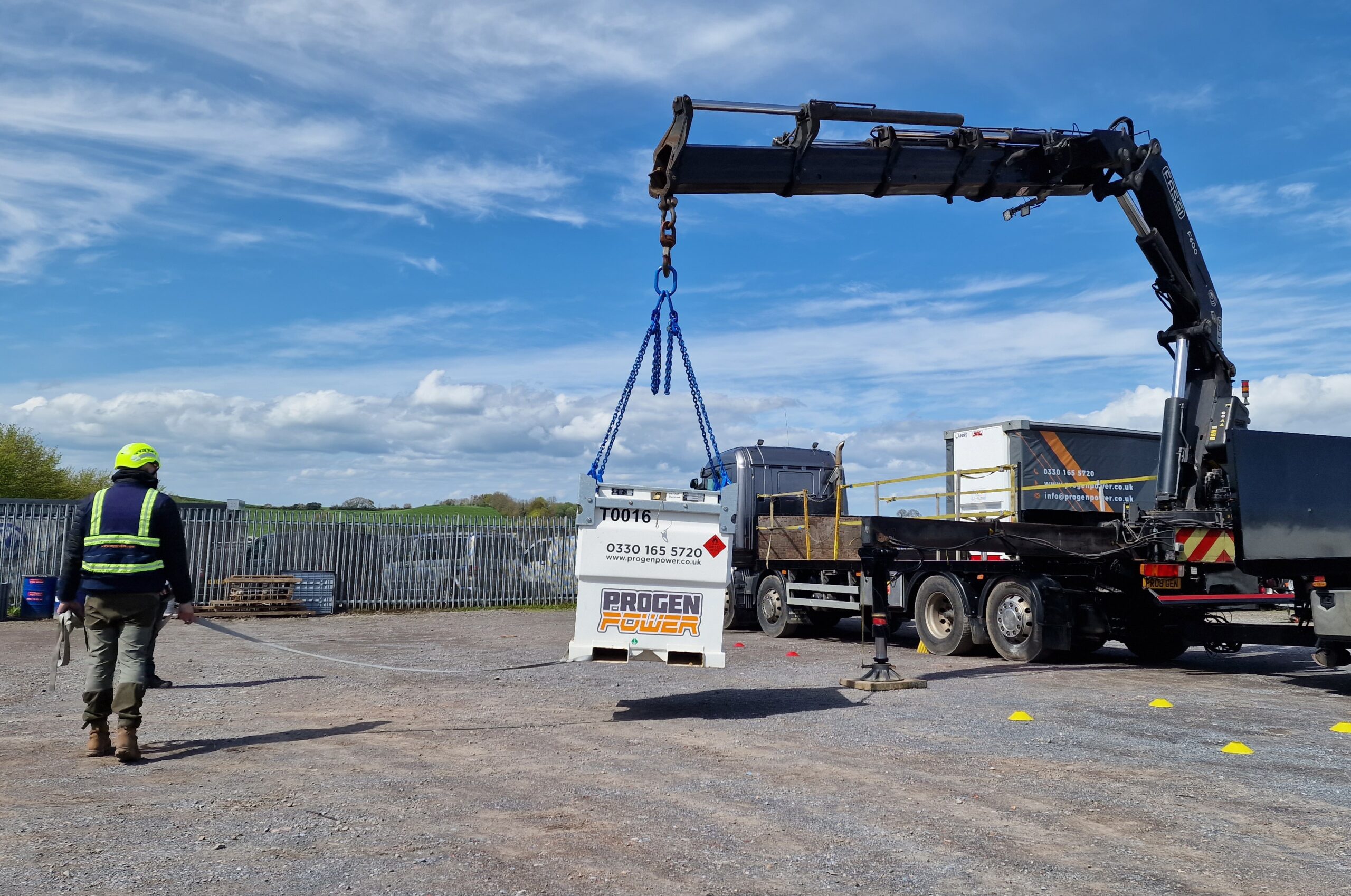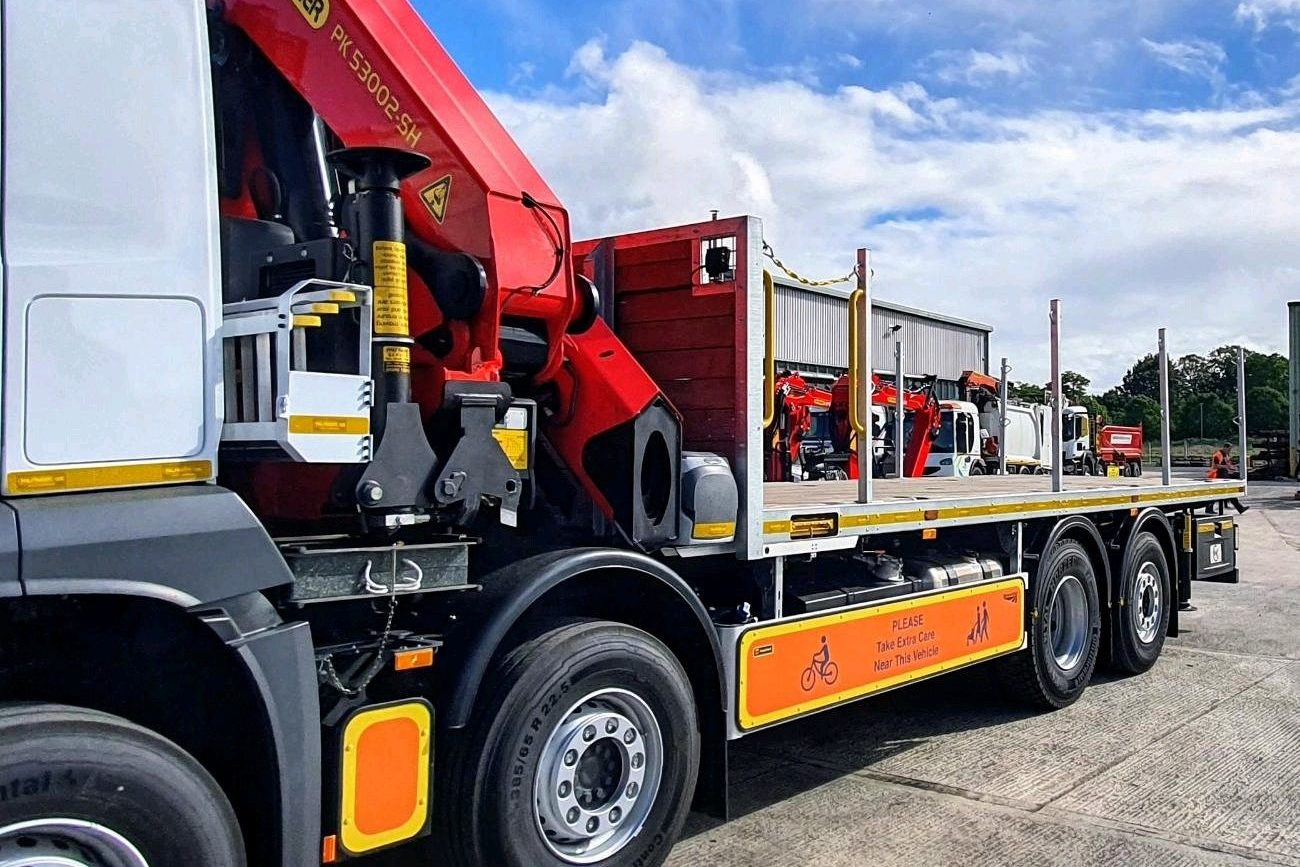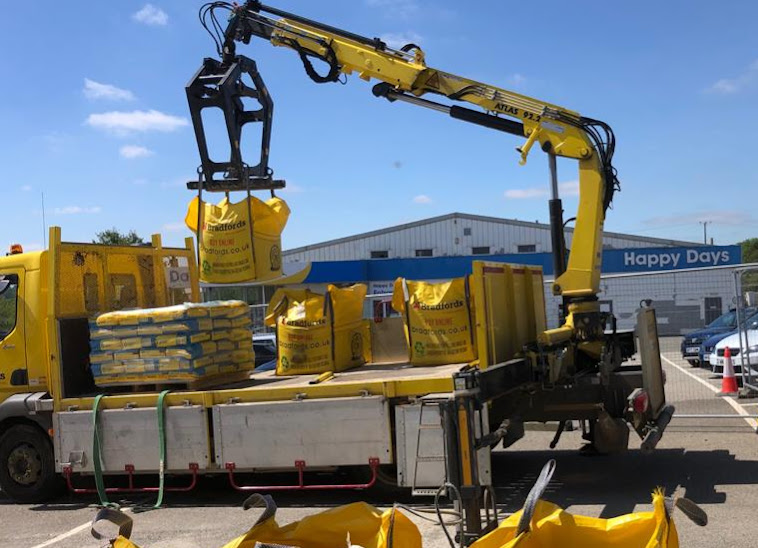RCSC Training is a trading name of Plant & Logistics Training Limited, providing quality Forklift Truck, Plant, Logistics, First Aid and Health & Safety training.
Registered in England and Wales (Company Number 13784172)

Director and instructor Sam spent almost 11 years in the Logistics sector before setting up Plant & Logistics Training Limited with fellow director Matt.
During that time, he gained his HGV C and C+E licences and has worked as a driver for a number of builder’s merchants across the South West – from Bournemouth to Penzance!
It was apparent that the majority of companies were diligent in checking that drivers were suitably qualified to operate the lorry loader (or HIAB as it is more commonly known) before sending them out to site.
A lorry loader course covers the safe operation of the lorry loader; legal responsibilities; equipment checks; hazards to be aware of and check for on site; best practice for setting up and operating the crane; correct stowing procedures and so on.
So, you would be forgiven for thinking that once a driver had obtained a certificate of training for the lorry loader, that you’d be good to go. Right?

Health and Safety law is clear. Employees must be able to carry out their duties without putting themselves or anyone else at risk.
The responsibility to ensure sufficient training, instructions and information have been provided to the employee sits with the employer. This is specified by the Health & Safety at Work Etc. Act and later clarified in the Provision and Use of Work Equipment Regulations (PUWER).
When a driver makes a delivery to site, the majority of the time they are not only required to operate the crane, but also attach/detach the load.
Doing so requires knowledge and skills that are not included in a standard lorry loader course.
For example, it’s important to understand the correct way of using slings, shackles and other lifting accessories that may be required and be able to identify appropriate accessories for the lift. Using them incorrectly, or using unsuitable equipment, can pose significant risks to the driver or other people on site, as well as risking damage to the lifting gear and/or load.
British Standard BS:7121 is the approved code of practice (ACOP) for the safe use of cranes, BS7121 Part 4 specifically deals with lorry loaders.
The standard clearly sets out the responsibilities of the ‘lifting team’ when it comes to carrying out any lift. The responsibility for attaching and detaching the load; selecting the correct accessories and inspecting the condition of the accessories before use, all fall under the role of the slinger, rather than the lorry loader operator.
That is not to say that the operator and the slinger cannot be the same person, of course. However, it is imperative that whoever has the responsibilities outlined under the role of the slinger has received the appropriate training to act in that capacity.
This is where many companies are potentially leaving themselves at risk.
Should an incident occur, and it be found that the employee was not sufficiently trained for the task they’d been assigned, a prosecution under the Health & Safety at Work Act could follow. This may expose your organisation to the risk of a hefty fine, not to mention the cost and disruption of the incident investigation and reputational damage associated with an incident.

Ensure that your drivers are suitably trained!
In addition to lorry loader training, we also offer Slinger/Signaller courses. Both of these can be completed through the Association of Lorry Loader Manufacturers and Importers (ALLMI); National Plant Operator Registration Scheme (NPORS) or Association of Industrial Truck Trainers (AITT).
There are pros and cons to each of the available schemes. Contact us today to find out more about each of them and which would be the best fit for your organisation!